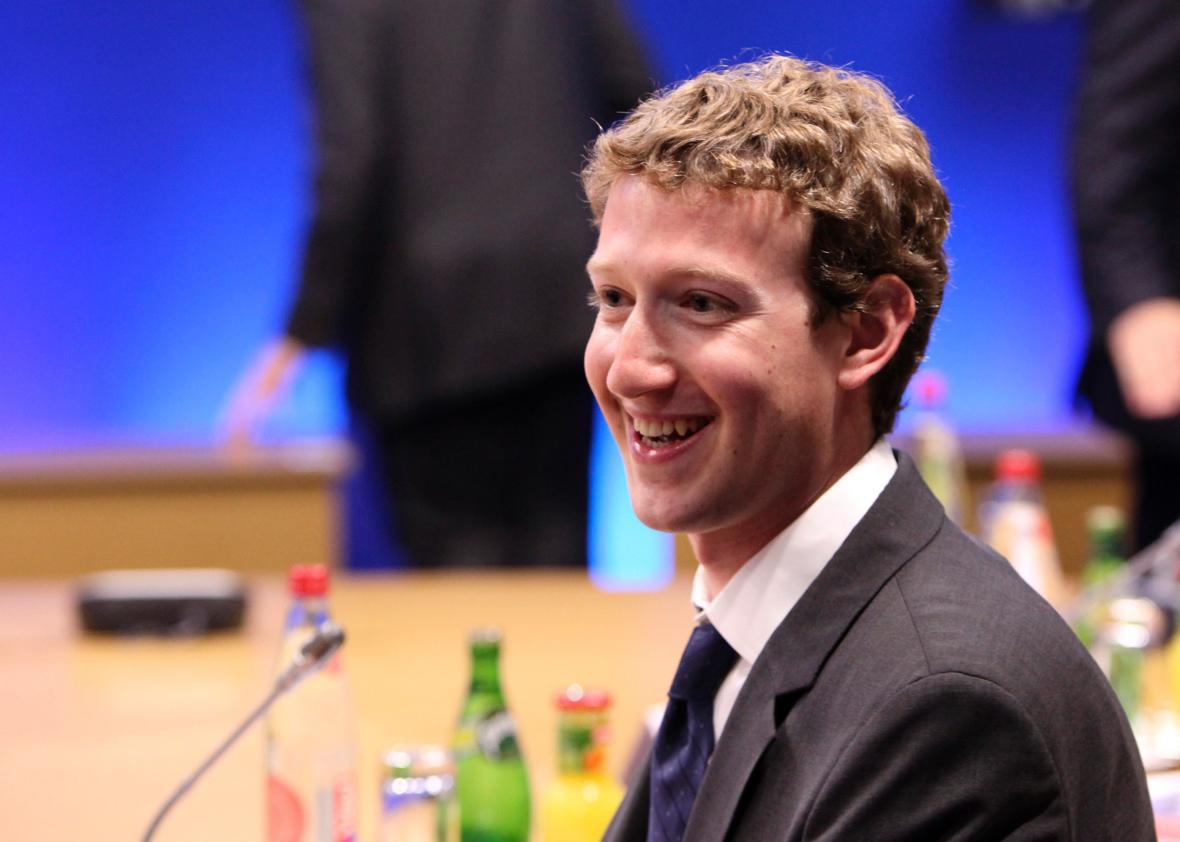Facebook founder Mark Zuckerberg has said, “When I was growing up, Bill Gates was my hero.” Now Zuckerberg, whose net worth is nearly $46 billion, seems to be taking the same all-in approach to philanthropy that Bill Gates (currently worth nearly $85 billion) is known for. On Tuesday, Zuckerberg and his wife, Priscilla Chan, announced the Chan Zuckerberg Initiative, a foundation that will be funded by 99 percent of the couple’s Facebook shares, currently about $45 billion.
The goal is “to join people across the world to advance human potential and promote equality for all children in the next generation. Our initial areas of focus will be personalized learning, curing disease, connecting people and building strong communities.”
Compare that with the Bill & Melinda Gates Foundation mission statement. “We see equal value in all lives. And so we are dedicated to improving the quality of life for individuals around the world. From the education of students in Chicago, to the health of a young mother in Nigeria, we are catalysts of human promise everywhere.” There is even a line in Zuckerberg’s announcement essay that says, “We believe all lives have equal value.”
It will be difficult for Zuckerberg to emulate the success, or even just the ubiquity, of the Bill & Melinda Gates Foundation. One reason is that the timing is different. Gates launched the BMGF in 2000 when he was 45 and had just stepped down as CEO of Microsoft. He remained at the company until 2006, at which point he switched to working full-time at the foundation. In contrast, Zuckerberg is 31, and it would be stunning if he were ready to leave Facebook any time soon. Where Gates chose philanthropic work as his next life phase after 30 years at Microsoft, Zuckerberg is running a booming, 12-year-old company and is a new father. (Oh yeah, he and his wife Priscilla also announced the birth of their first child, named Max, on Tuesday.)
Zuckerberg seems proud to be associated with Gates. They appeared together on a Wired cover in 2010, and Zuck posted a photo from that shoot to Facebook on Sunday to announce that he was joining the Gates Foundation–led Breakthrough Energy Coalition. Zuckerberg wrote, “Priscilla and I are joining Bill Gates in launching the Breakthrough Energy Coalition to invest in new clean energy technologies.”
Zuckerberg’s effectiveness as a philanthropist is uncertain, though. His $100 million donation to Newark, New Jersey, public schools in 2010 has “slowly melt[ed] into an ocean of recrimination,” as Jonathan A. Knee put it in the New York Times. His Internet.org initiative to offer low-cost Internet access in developing markets has been met with harsh criticism from net neutrality advocates. And Fwd.us, the lobbying coalition (largely focused on immigration) he founded with Bill Gates and others has been floundering since the 2014 ouster of then-president Joe Green, one of Zuckerberg’s Harvard roommates.
Early failures could be fertile training for bigger successes, though, and there are certainly aspects of the Zuckerberg/Gates comparison that line up. Both started at Harvard and went on to found defining tech companies of their respective generations. Both are programmers-turned-leaders. Both are known for working obsessively on things until they get them right. And the BMGF certainly has its fair share of controversy. It’s not always clear what the “right thing to do” is.
Still in his early 30s, Zuckerberg may eventually leave Facebook and double down on the foundation he has created, or he might stumble on another next big thing in the tech industry and put it off. Regardless of how things play out, it takes more than just billions to be the next Bill Gates.
